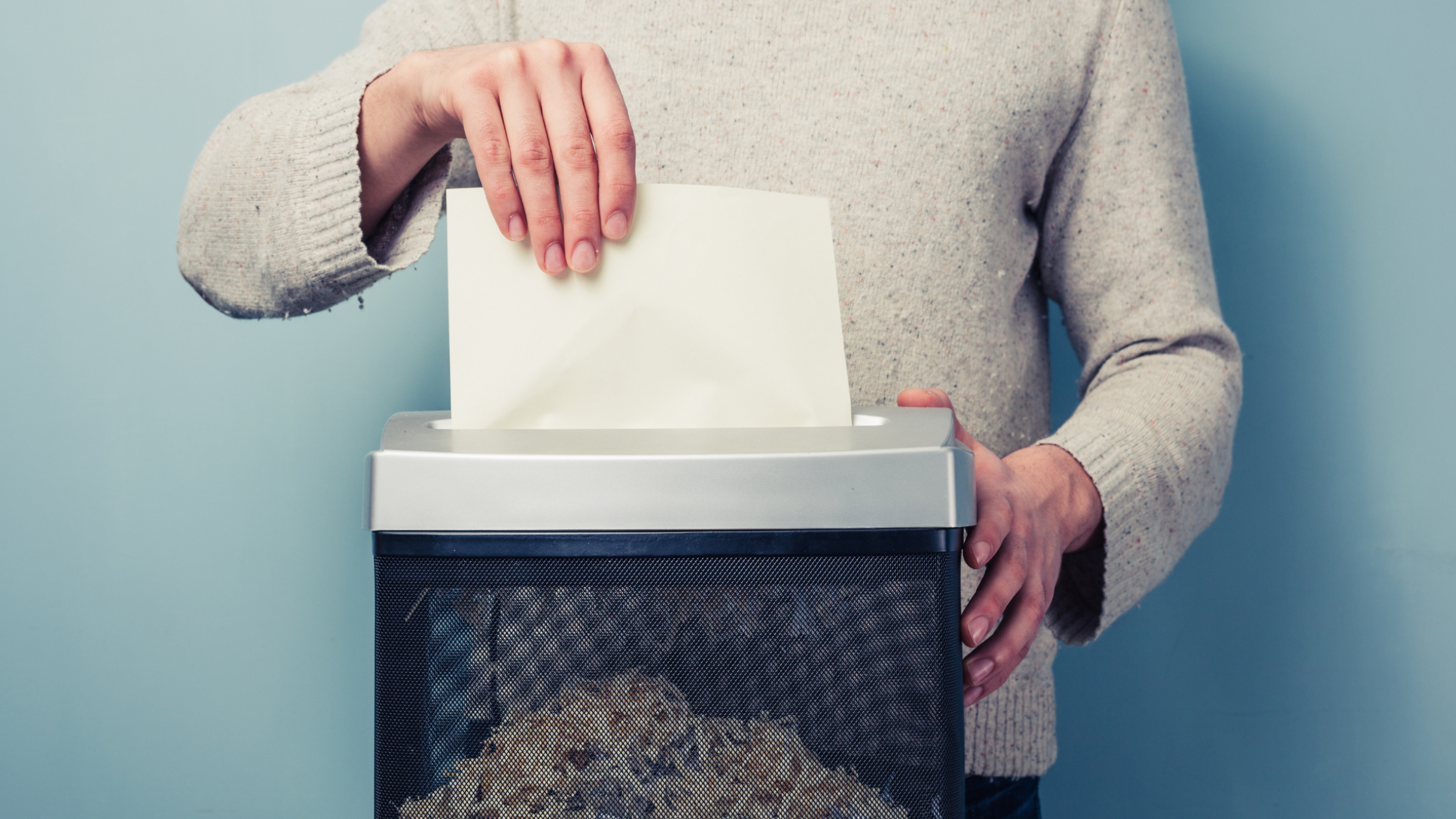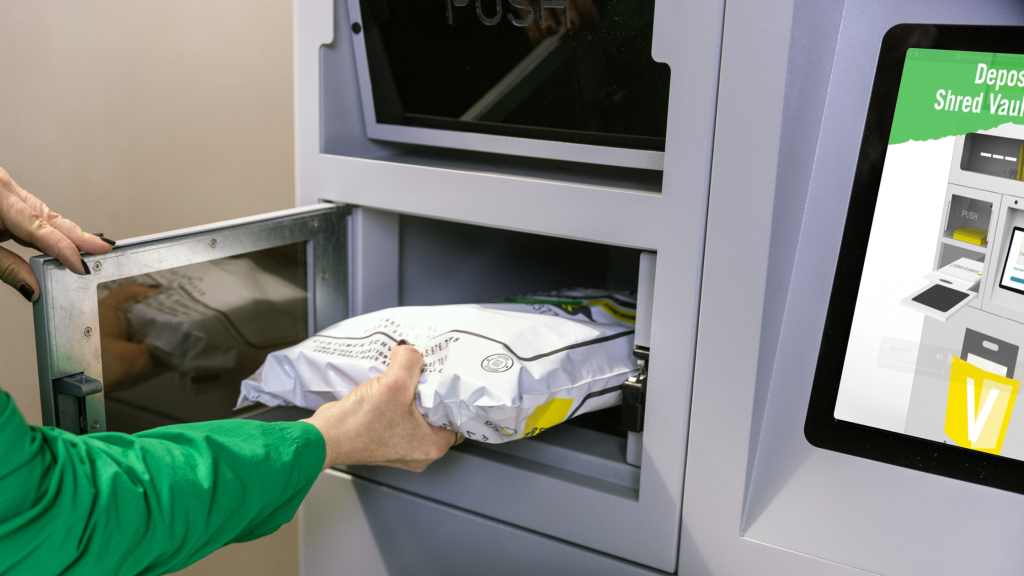Aware of the unacceptable risks of casually discarding sensitive information, many cautious and cost-conscious individuals believe having a shredder is the solution. Ironically, whether for office or home use, relying on a personal shredder is among the most expensive and least secure options.
Of course, what is not at question is why sensitive information has to be destroyed in the first place.
At work, it’s the law. Any organization with customers or employees is covered by one or more regulations that require sensitive information be destroyed prior to disposal. And, while the regulatory fines for disregarding this requirement grow by the day, so does client and employee retribution. At worst, they can bring a lawsuit. At minimum, they will find another place to do business.
In the home, it is a little different. While there is technically no law requiring an individual to protect their own personal information, it is important to avoid putting one’s family at risk of identity theft or privacy violations.
One of the problems with relying on personal shredders, both at home and at work, is that people tend to avoid using them. Shredders are slow and laborious (not to mention noisy) and, as a result, there is a strong temptation to rationalize that not shredding the materials is okay “just this once.” But it isn’t just once, and before long the shredder is unplugged and collecting dust.
But, for the sake of discussion, let’s say the shredder is used despite the strong temptations not to. Where do the shreds go? In the trash, of course. If someone comes looking, the shredded stuff is what they take. There have already been countless cases where shredded paper was reconstituted (and even admitted as evidence by courts). It’s crosscut, you say, so there is no problem there. Really? That sounds like famous last words in a world where highspeed scanners and A.I. are at everyone’s fingertips. The fact is, putting shredded paper in the trash – even crosscut –only tells the bad guys what to take. They probably appreciate that.
Another problem with personal shedders is that, if used with any regularity, they are prone to breakdowns. This is especially true in the office. As a result, instead of being shredded, the sensitive information piles up. Finally someone gets frustrated and tosses it out. All anyone knows is that it’s gone…never mind how.
And, finally, even if the shredder is being used conscientiously and stays in good working order, its use provides no ongoing documented record of compliance with data protection or records retention policies. Why is this important? Because data protection regulations now require the ability to demonstrate compliance over time. Pointing to a shredder in the corner of the copy room isn’t sufficient. And so, with this additional requirement in mind, using a personal shredder takes on a new level of inconvenience, since to be compliant with regulations would require elaborate chronicling of each use.
The unfortunate part of all the above is that those who attempt to use personal shredders have the right idea and best of intentions. They just want to do right by their families and their customers.
Luckily, there is a better option.
Shred Vault is used by an increasing number of businesses and households to protect themselves. Whether its finding one of Shred Vault’s convenient drop-off kiosks or scheduling a pick-up, economical, compliant, convenient and ultra-secure secure data destruction is only one-click or one phone call away.
© 2023 – Shred Vault, LLC – All Rights Reserved





